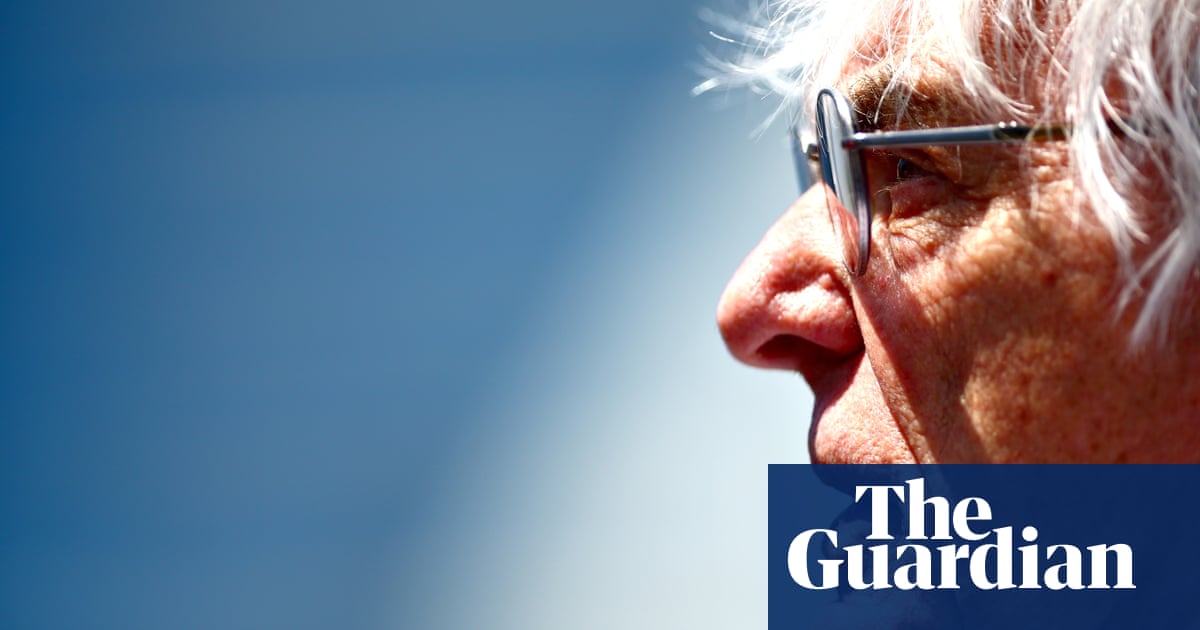
Tributes from across the motor racing world have been paid to Max Mosley, the former president of Formula One’s governing body, the Federation Internationale de l’Automobile (FIA), who has died of cancer aged 81. Alongside F1’s former chief executive Bernie Ecclestone, Mosley played a fundamental role in shaping modern F1 and motor racing as president of the FIA between 1993 and 2009.
He leaves a lasting legacy in his strident and successful push toward safety in F1, motor racing and road cars.
Ecclestone expressed his sadness at the death of his friend. “It’s like losing family, like losing a brother, Max and I,” he said. “He did a lot of good things not just for motor sport, but also the [car] industry. He was very good in making sure people built cars that were safe.”
The current president of the FIA Jean Todt, who succeeded Mosley, led the other tributes. “Deeply saddened by the passing of Max Mosley.” he wrote on Twitter. “He was a major figure in @F1 & motor sport. As @FIA President for 16 years, he strongly contributed to reinforcing safety on track & on the roads. The entire FIA community pays tribute to him. Our thoughts & prayers are with his family.”
A spokesperson for F1 said: “We are saddened to hear that Max Mosley former FIA President has passed away. A huge figure in the transition of Formula One. Our thoughts are with his family and friends at this sad time.”
F1 teams all added their tributes including current world champions Mercedes. “From driver to team founder to FIA President, Max Mosley was a powerful modernising force for world motor sport and a unique personality in our industry. On behalf of Mercedes, we extend our sympathies to his family and friends”, they tweeted.
Mosley had a successful career as a barrister before taking to racing, including competing in F2, driving in the race at which Jim Clark was killed at Hockenheim in 1968.
He retired from driving in 1969 to co-found March Engineering which manufactured cars and competed as a constructor in F1. During his time with March he became involved with the Formula One Constructors’ Association, which represented the commercial interests of teams. He met and was immediately impressed by Ecclestone in 1971 when Ecclestone bought the Brabham team, beginning a relationship that would span decades.
As legal adviser to FOCA he helped draft the original Concorde agreement, the commercial contract with teams, the latest version of which was renewed by F1’s owners, the FIA and the teams in 2020. In 1991 he became president of the FIA’s racing governing body at the time, the Fédération Internationale du Sport Automobile and was elected as FIA president in 1993.
Mosley retained very close ties with Ecclestone, with the pair acting in tandem to maintain control over manufacturers and teams in steering F1. At the FIA Mosley leased the commercial rights to F1 to Ecclestone and during this period the sport gained a huge global audience, generating billions of pounds.
On taking over at the FIA he immediately pushed for the organisation to make a difference in road safety. A year later the deaths of Roland Ratzenberger and Ayrton Senna at the 1994 San Marino Grand Prix, led him to enforce swingeing changes that fundamentally improved the safety of F1 and motor racing.
He formed an advisory group, chaired by Professor Sid Watkins, to research and improve safety in motor racing. The changes they instigated were very successful. They included reducing the power of engines, circuit redesign to reduce the impact of crashes, the HANS (head and neck safety) device – now used across motor sport and stringent improvements in the requirements for crash testing. He was also the first chairman of the F1 Safety Commission, which focused on the development of circuit safety. Since 1994 only one driver has died as a result of an accident in an F1 race, Jules Bianchi who crashed at the Japanese GP in 2014.
Just as his private life was not without scandal, he was the subject of a tabloid expose of his sex life, so his time at the FIA was not without controversy. He was central to the decision for the 2005 US Grand Prix at Indianapolis to go ahead, despite the teams running with Michelin tyres saying without track changes they would pull out before the race because they were concerned over safety. They duly did so and the race went on with just six cars competing. He was equally criticised for his handling of the spygate affair involving McLaren and Ferrari in 2007.
Mosley was proudest of pushing through the adoption of the European New Car Assessment Programme. A road car safety programme declared by the EU in 2000 to be the “single most important mechanism for achieving advances in vehicle safety”.
Mosley was autocratic and controversial but fiercely intellectual and committed to his role. A documentary film about his life, entitled Mosley, is set to be released in July.












